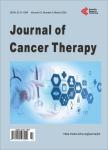The Breast Cancer Lifestyle Intervention Pilot Study
The Breast Cancer Lifestyle Intervention Pilot Study作者机构:Department of Surgery New York University Langone Medical Center New York USA School of Medicine New York University Langone Medical Center New York USA Moving for Life New York USA
出 版 物:《Journal of Cancer Therapy》 (癌症治疗(英文))
年 卷 期:2014年第5卷第12期
页 面:1031-1038页
学科分类:1002[医学-临床医学] 100214[医学-肿瘤学] 10[医学]
主 题:Breast Cancer Lifestyle Intervention Obesity
摘 要:Purpose: Weight loss after breast cancer diagnosis has been associated with a decrease in risk of breast cancer recurrence and mortality. The purpose of this study is to examine the barriers, acceptance, and sustainability of an exercise intervention program offered at our institution to overweight women with newly diagnosed breast cancer. Methods: The Breast Cancer Database was queried for women newly diagnosed with breast cancer and a body mass index (BMI) ≥ 25 kg/m2. Eligible patients participated in the Moving for Life (MFL) exercise program for 16 sessions. Questionnaires were administered. Statistical analyses included descriptives and paired t-tests to summarize patient characteristics and assess changes over time. Results: Of 40 patients, 22 declined, 18 consented and 13 (72%) completed the study. The mean age was 61 years (range: 38 - 76). The mean BMI was 31 kg/m2. After the intervention, there was a decrease in weight and BMI (p?= 0.04). The average weight loss was 10 lbs. Participants reported greater enjoyment of exercise (p?= 0.02) and decreased pain related to treatment (p?= 0.05). These initial positive results were not maintained after 6 months and 1 year. Conclusions: The MFL intervention had a high rate of acceptance among overweight women newly diagnosed with breast cancer. These results demonstrated significant benefits of exercise immediately after cancer diagnosis and highlight the importance of developing sustainable lifestyle interventions. Interventions targeted at modifiable lifestyle factors in women with early stage disease may provide benefit that is comparable to certain adjuvant systemic therapies. Therefore, adjuvant lifestyle interventions supported by clinicians may improve breast cancer survival outcomes.



